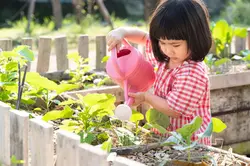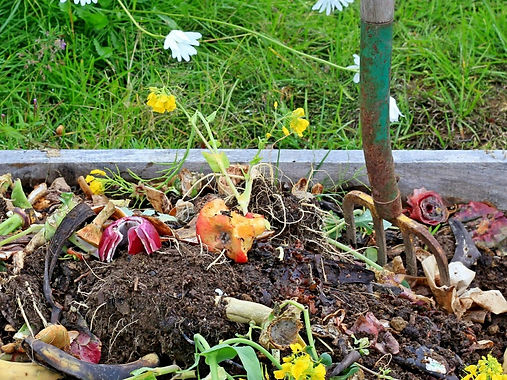GARDENS4KIDS
GARDENS4KIDS
 |  |  |  |  |
|---|---|---|---|---|
 |  |  |
Composting
Composting is a valuable ally in the garden, playing a crucial role in enhancing soil health and plant growth. Though it cannot replace our responsibility as the main water provider, composting aids in reducing the burden of watering by improving the water retention capacity of the soil. Monitoring plant water intake remains essential for gardeners, as even with the assistance of rain, additional watering might be necessary for optimal growth. As with a rain gauge that measures rainfall, composting serves as a practical tool for sustainable gardening practices, providing nutrient-rich organic matter to nourish the garden and promote thriving plants.

Questions to Explore
-
How does composting in the garden contribute to reducing the need for excessive watering and conserving water resources?
-
What role does compost play in improving the soil's water retention capacity, and how does this benefit plant growth during periods of inadequate rainfall?
-
In the context of composting, how can gardeners effectively assess the water needs of plants by examining the soil condition and observing the state of the leaves, even after a rainfall event?

Activities
Interactive Activity
Steps
-
Set up a compost bin or pile, layering yard waste and kitchen scraps, and maintain it by regularly turning the compost to accelerate decomposition.
-
Monitor the compost's progress over several weeks, observing the reduction in volume and the appearance of rich, crumbly compost.
-
Apply the matured compost to the garden bed, spreading it evenly on the soil surface.
-
Plant a variety of vegetables, herbs, or flowers in the enriched garden bed, ensuring they receive adequate watering.
-
Reflect on the benefits of composting for sustainable gardening and environmental conservation.